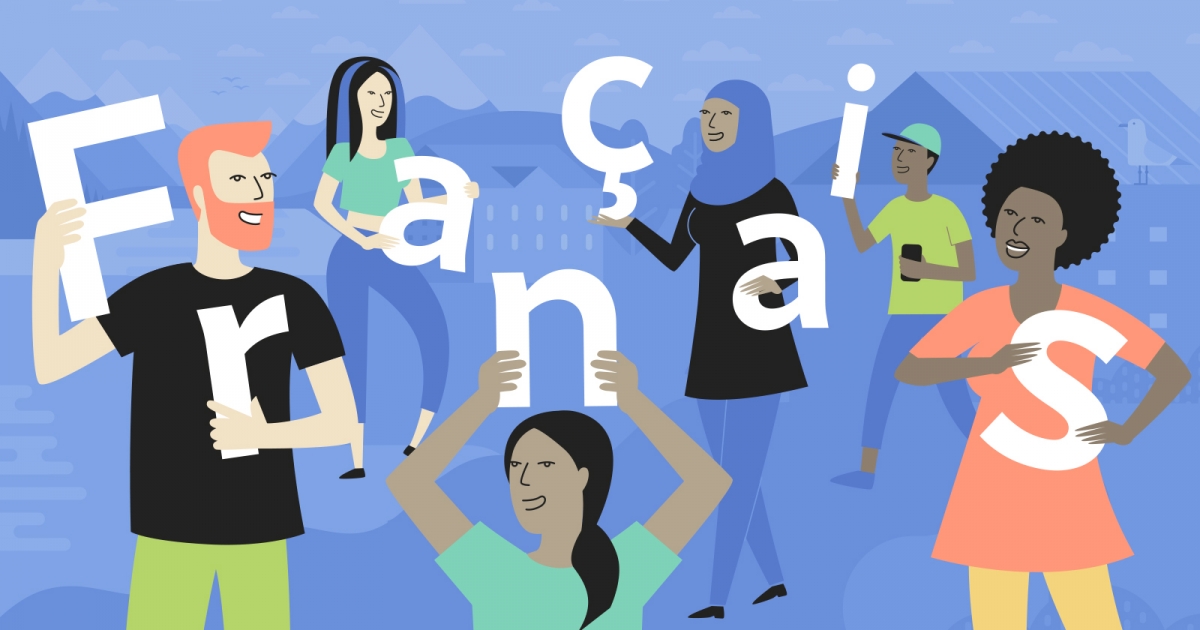Seeking a Better Understanding of Francophone Diversity from Coast to Coast

Adéla Šebková, a doctoral student in sociolinguistics, is currently travelling across Canada to meet individuals living in francophone minority settings. She is studying the ways in which both native French speakers and newer speakers of French living in minority settings are represented in the media.
About 10 years ago, I learned French as a second language. While travelling in France, I was often surprised by the way certain people expressed themselves around me. Travelling through the different parts of the country, I wondered why I did not understand certain words that I had heard in Alsace, in the south of France, or elsewhere. I began to wonder if I had learned the language well enough. In any case, I was pretty sure I knew how to refer to the things around me, so how could there be so many linguistic differences?
Several years later, I became a doctoral candidate in sociolinguistics in Canada. I have learned that you can speak French, or rather one of the "Frenches," no matter what situation you are in or who you are talking to. I have also learned that language is difficult to separate from its speakers, because it is part of their identity, because it comes with a strong symbolic power and because it governs the relationships between people. I have also noticed that using certain words or phrases makes people react, but not always in a positive way. Some people feel superior or inferior simply because of the way they speak. And this is true whether they are native French speakers or recent learners. But why? Because they speak differently? Come on, there's no linguistic reason why some ways of speaking are better than others. Is there? I wanted to know more.
The way a language is spoken can have strong social implications, especially in places where the vitality and survival of the language and its dialects is in question. To better understand, I set out to discover the different French-speaking voices across Canada, and I made a commitment to further promote linguistic diversity, in particular via the French section of the Mauril language learning app.
As I travelled for my research, I wondered if people noticed linguistic differences and whether or not these differences influenced their daily lives. I observed that francophones in a minority setting do not feel sufficiently recognized with respect to the Canadian Francophonie, that they do not always understand one another, and that they do not always consider their way of speaking as legitimate and prestigious. They sometimes compare their language to Quebec French or French from France, both of which employ norms that are not necessarily present in their French, but which are more socially valued. Further, for newer learners of the French language, a population that contributes significantly to the local Francophonie, the situation is also not without its nuances. One must learn and evolve in an environment where different standards compete with each other. One is a more academic standard and the other is spoken in very diverse communities across the country. In short, you do not always hear the same French everywhere you travel.
Reflecting on these observations, I realized the role that the Mauril app has to play in this reality. Indeed, Mauril encourages not only learning French, but also learning the "frenches" spoken in Canada. By reflecting the diversity of linguistic repertoires, this language app contributes to a better understanding of Canadian realities, thus facilitating learners' relationships with other francophiles or francophones. Mauril also has a symbolic dimension for native French speakers. As an educational tool, Mauril values plurality by giving a voice to different local customs that can help speakers combat linguistic insecurity. This is a role that is perhaps even more important than one might have originally thought.
More on the subject:
Une doctorante parcourt le Canada pour étudier la francophonie minoritaire
Une étudiante en sociolinguistique s'intéresse au Grand Sudbury
La sociolinguistique et la sécurité linguistique
Entrevue avec Adéla Šebková : Minorités francophones hors Québec







